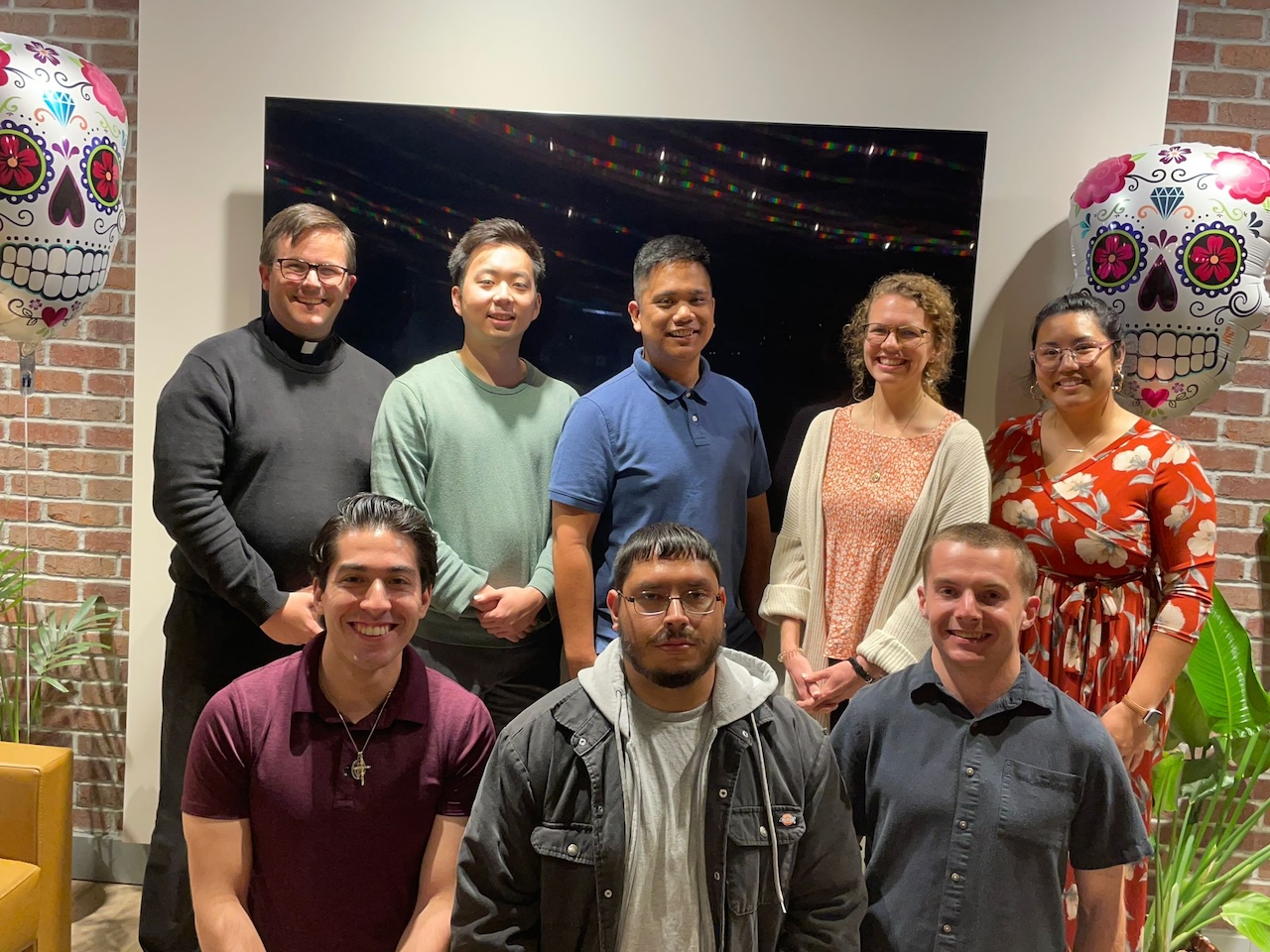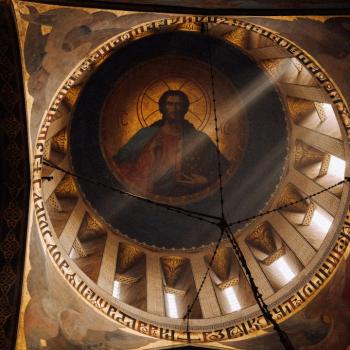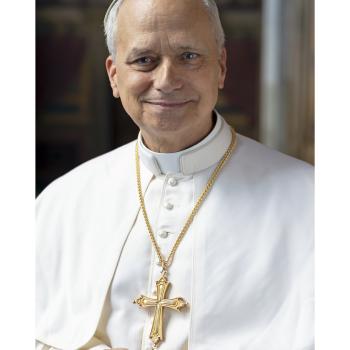Today’s first reading is about the Chosen People going home to the Promised Land and the Gospel is about Christ forming small groups that make the Church feel like a home. We need to build community.
Looking at data from Christians of other denominations, we find that
Three out of five house church adults (61%) were “completely satisfied” with the level of community and personal connectedness they experience, compared to only two out of five adults who are involved in a conventional church (41%) (Barna Group, “House Churches Are More Satisfying to Attenders Than Are Conventional Churches”).
We need to feel more at home at church if we are going to have the experience of community God wants us to have. We hear in the book of Joshua how he gave them an experience of community.

Joshua, Successor of Moses
Joshua was the first successor of Moses and the one chosen by God to lead the Chosen People into the Promised Land. Although the Hebrews had left Egypt with the hope of salvation symbolized by going back to their ancestral land, their disobedience and hard-heartedness in the desert caused God to forbid them from entering. Rather, their children would enter, led by Joshua, carrying out the mission began by Moses.
Deciding for the Lord
Even as they are at the threshold of fulfillment of the promise, Joshua detects that some of the Israelites are still against following the Lord. He requires them to renew their profession of faith and enter as a community united in belief. He sets up boundaries about what it means to follow God and enforces these boundaries to help create a believing community.
“If it does not please you to serve the LORD,
decide today whom you will serve,
the gods your fathers served beyond the River
or the gods of the Amorites in whose country you are now dwelling.
As for me and my household, we will serve the LORD” (Joshua 24:15).
Professing Our Faith
God requires each of us to make a similar decision. It is part of what we profess in the Creed every Sunday before moving on to the Liturgy of the Eucharist. Before entering into communion with God, we have to re-affirm our faith. If we are going to leave aside essential elements of doctrine, we are unable to make an external act of communion, as effected by receiving the Body and Blood of our Lord in the sacrament of the Eucharist.
Eucharist as Source of Communion
The Eucharist is the greatest source of our unity and communion, already from Gospel times. We see it in today’s Gospel, in which Jesus challenges his apostles. After hearing the Bread of Life discourse, many of the disciples leave Jesus. He then turns to the Twelve and asks them:
“Do you also want to leave?” (Jn. 6:67)
Peter answers, but in the plural form. He puts himself forth as the representative of the Apostles.
“Master, to whom shall we go? You have the words of eternal life. We have come to believe and are convinced that you are the Holy One of God” (Jn. 6:68-69).
First Christian Community
Thus, we see the beginnings of a small group faith community. These particular men were gathered around Jesus. Nevertheless, the phenomenon of the small group was a modality repeated universally in the early Church. Pope Francis reflects on this when speaking about the Letter of Paul to the Galatians.
When Paul arrived in a city, in a region, he did not build a great cathedral immediately, no. He created small communities that are the leaven of our Christian culture today. He began by making small communities. And these small communities grew, they grew and they went forward. Today, too, this pastoral method is used in every missionary region. (Pope Francis, 23 June 2021).
We want to take advantage of opportunities to form small groups. These help us to receive Christ’s message and carry it out more authentically in our own lives. They do this through building up community, discipleship, authenticity and accountability.
Community
Small groups help us build a sense of community. We saw in the first reading with Joshua how it is possible for a leader to address everyone at once. It is necessary for everybody to assemble as we do at the Sunday Eucharist. While we begin to experience community at Sunday Mass, we grow deeper when we come together in small groups.
Discipleship
Small groups help us grow as disciples and help us to learn how to disciple others. How do we learn to disciple others through small groups? We learn by teaching others. Perhaps there is something we know that someone else does not. Then, we teach. Or something comes up and we ask at small groups, and someone else teaches us. We learn. Jesus taught the disciples and sent them out to teach others. We have a bit that same dynamic in our small groups.
Authenticity
We all know that it can be hard to live out the Gospel authentically. We can speak about these difficulties and gain tips and insight when we bring them up and discuss them in our small groups. One interesting experience I have had in small groups is hearing someone else’s difficulties and realize that I struggle with the same thing, even though I had never given it much notice. Sharing in a group and having friends who can call me out when I do not live up to the Gospel is a great means for living authentically.
Accountability
It is easy for any one of us to be unfaithful to God and to others. Our small groups can help hold us accountable for our actions. If we begin to slip away, the relationships that we have formed in our small groups help to bring us back and encourage us when we would otherwise walk away from Jesus like so many of his followers did after the Bread of Life Discourse.
Do you feel at home at church? If you don’t or you want to feel even more at home, join a small group.
Subscribe to the newsletter to never miss an article.
















